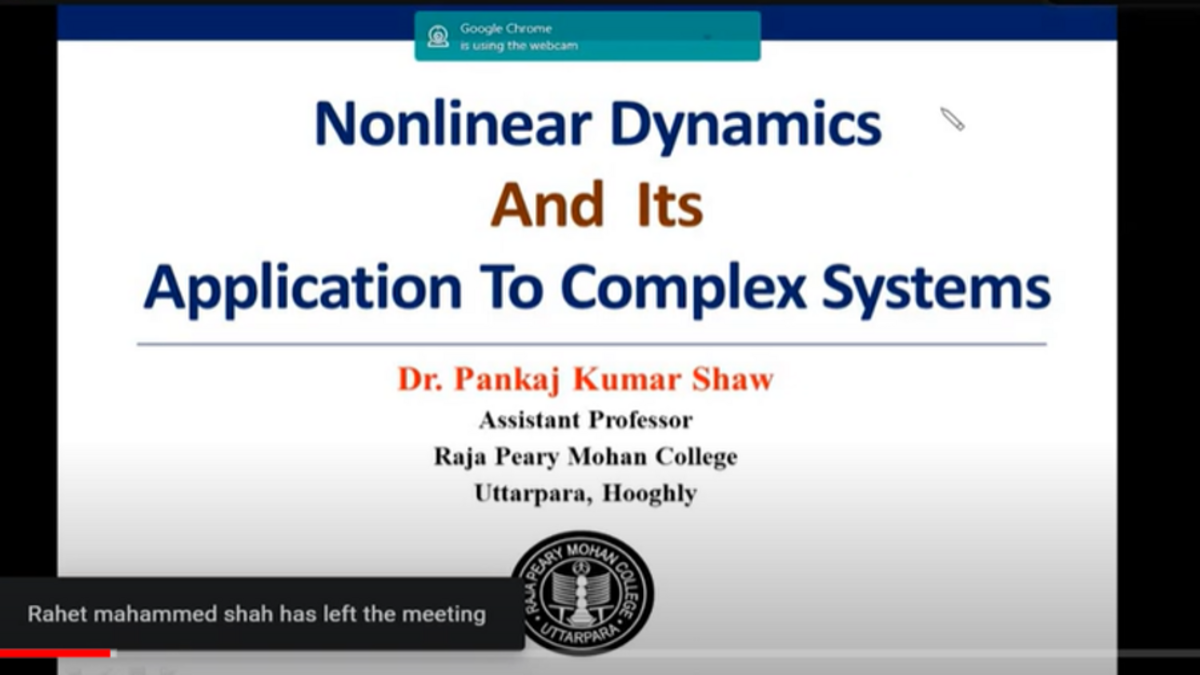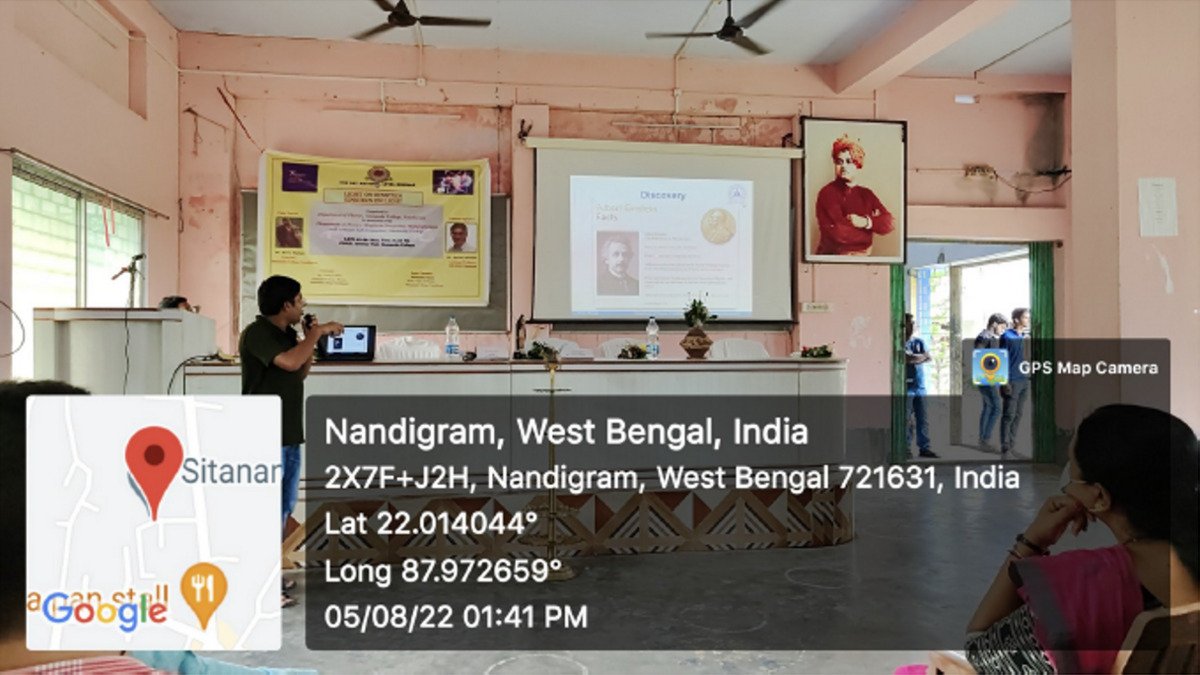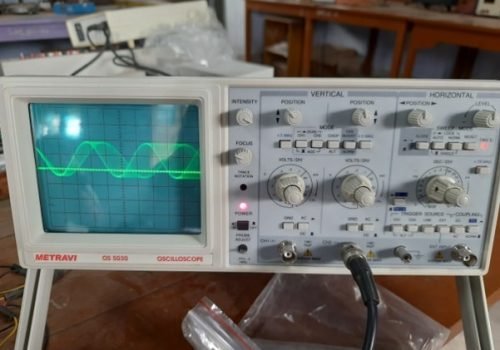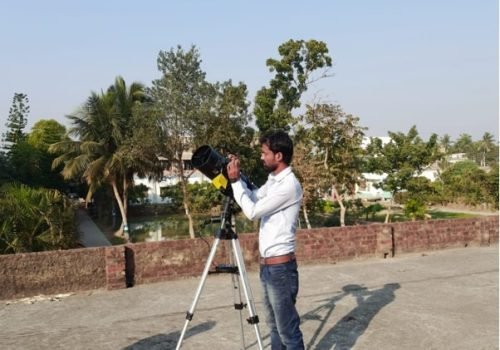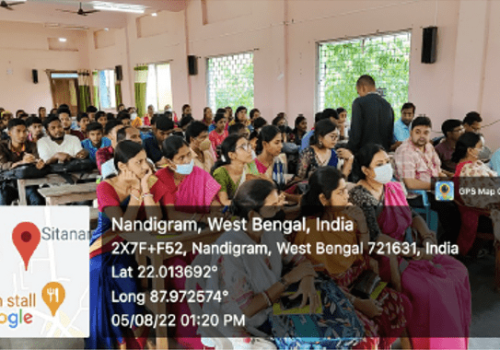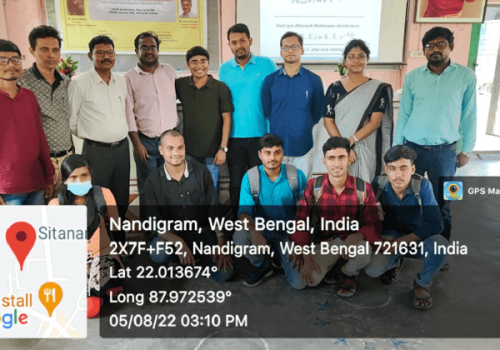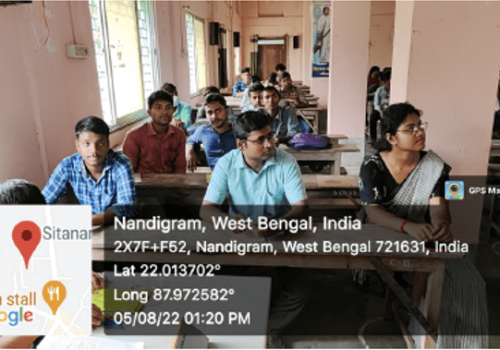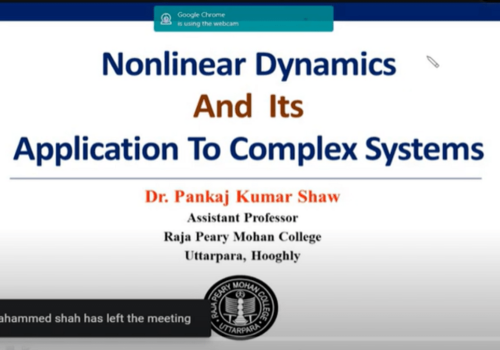Physics
Our Departments
Announcements
Notice Inviting Sealed Rate Quotations For Empty Colour Containers (20l & 10l)
UG 1st Semester Registration Schedule (Session 2025–2026)
Important Notice Regarding Registration Certificate Submission
UG admission Verification notice: Stand alone Mode 1
About The Department
Why Study Physics?
Understanding the Universe: Physics provides insights into the fundamental principles governing everything from subatomic particles to the cosmos. If you’re curious about how the universe works, physics offers answers to some of the most profound questions.
Problem-Solving Skills: Physics challenges you to solve complex problems, often requiring creative and critical thinking. These skills are highly transferable and valued in many fields, including engineering, data science, finance, and technology.
Technological Advances: Many of the technologies we rely on today, from smartphones to medical imaging devices, have roots in physics research by studying physics, you contribute to future innovations and technological progress.
Scientific Foundations: Physics is the foundation of other sciences, such aschemistry and astronomy. A strong understanding of physics can enhance your comprehension of these related disciplines.
Interdisciplinary Opportunities: Physics often intersects with other fields, such as biology (biophysics), materials science, and economics. This interdisciplinary nature can lead to diverse career opportunities and a broader perspective on scientific problems.
Intellectual Challenge: For those who enjoy intellectual challenges and rigorous thinking, physics offers a stimulating environment. It involves exploring abstract concepts and developing sophisticated models to explain physical phenomena.
Career Flexibility: A degree in physics opens doors to various career paths.Physicists work in academia, industry, government research labs, and more. Skills developed through physics training are highly valued in many sectors, including finance, consulting, and technology.
Contributing to Knowledge: Physics research can lead to groundbreaking discoveries that expand human knowledge and understanding. Being part of this process can be incredibly fulfilling.
Personal Satisfaction: Many people find joy and satisfaction in understanding how the world works at a fundamental level. For those who are passionate about the subject, studying physics can be a deeply rewarding pursuit.
Departmental Highlights
- Friendly atmosphere among the teachers and the students.
- Small but adequate laboratory facilities.
- Special care towards the Computer Programming (Python) classes.
- 6-inch Newtonian Reflector Telescope for night sky-watching.
- Research collaboration with I.I.T. Kharagpur through SERB-TARE project worth Rs-18.3 lakhs.
- Research project guidance at the UG and PG level.
- Career guidance: Guidance for the entrance tests JAM for admission to M.Sc. Physics in IITs and CUET for admission to M.Sc. Physics in the Central Universities.
- National and international seminars on both cutting edge research and general topic by prominent speakers are organized every year.
Names of Programmes / Courses running:
UG [Core and Generic(CBCS); 4 Yr H & R, 3 Yr Multidisciplinary(NEP)]
Annual/ semester/choice based credit system (Programme wise):
Semester and Choice Based Credit System (CBCS)
Semester and CCFUP(2023) & NEP(2023)
Participation of the department in the courses offered by other departments:
Students of Physics Honours attend the classes/Courses offered by Chemistry and Mathematics Department as well.
Also the Students of Physics Honours attend the classes (i) Compulsory English (ii) Compulsory Bengali and (iii) Compulsory Environmental studies.
In NEP system students attend the classes SEC, AEC, MDC, VAC(ENVS)
Departmental Results
| Year | Outgoing Students with B.Sc.(Hons./Gen.) | Percentage of the successful candidates | Number of first class | Highest Marks/CGPA |
|---|---|---|---|---|
| 2018 | 01 | 100% | 01 | 490/800 |
| 2019 | 03 | 100% | All second class | 469/800 |
| 2020 | 03 | 100% | 02 | 7.42/10 |
| 2021 | 04 | 100% | 04 | 8.37/10 |
| 2022 | 05 | 100% | 05 | 8.37/10 |
| 2023 | 01 | 100% | 01 | 8.28/10 |
Infrastructure of Physics Department
| 1 | Departmental Library | Available |
| 2 | Internet facilities | Available |
| 3 | Class rooms | Available |
| 4 | Honours Laboratory | Equipped |
| 5 | General Laboratory | Equipped |
| 6 | Dark room for Optical experiments | Equipped |
| 7 | Telescope for sky watch | Available |
| 8 | Computer for Programming lab. | Available |
Some Major Experiments in our Lab. according present CBCS/NEP syllabus:
- Measurements of length (or diameter) using vernier callipers, screw gauge and travelling microscope.
- To determine g by Bar Pendulum.
- To determine the Elastic Constants of a Wire by Searle’s method.
- To determine the wavelength of H-alpha emission line of Hydrogen atom.
- To determine the Planck’s constant using LEDs of at least 4 different colour.
- To determine the value of Boltzmann constant using V-I characteristics.
- Photo-electric effect: photo current versus intensity and wavelength of light; maximum energy of photo-electrons versus frequency of light.
- To study the characteristics of a series RC Circuit.
- To determine an unknown Low Resistance using Potentiometer.
- To determine an unknown Low Resistance using Carey Foster’s Bridge.
Curriculum Plan
1. Cultural Appreciation
Bengali literature offers a profound insight into the rich cultural heritage, traditions, and ethos of the Bengali-speaking people. By studying Bengali literature, students gain a deeper appreciation for the diverse cultural nuances embedded within the language, fostering cross-cultural understanding and respect.
2. Language Proficiency
Bengali literature serves as a linguistic resource for students to enhance their proficiency in the Bengali language. Through exposure to a wide array of literary genres, styles, and linguistic expressions, students develop a nuanced understanding of Bengali grammar, vocabulary, and syntax, thereby strengthening their language skills.
3. Aesthetic Appreciation
Exposure to the literary masterpieces of Bengali literature cultivates students' aesthetic sensibilities and fosters an appreciation for artistic expression. Through the exploration of poetic imagery, narrative techniques, and rhetorical devices, students develop a discerning eye for beauty, creativity, and artistic innovation.
4. Literary Analysis & Interpretation
Studying Bengali literature hones students' analytical and critical thinking abilities as they dissect and interpret complex literary texts. By analyzing themes, characters, motifs, and literary devices, students learn to discern deeper meanings, contextualize historical and social influences, and appreciate the intricacies of narrative structures.
5. Cultural & Historical Context
Bengali literature provides a window into the socio-political, historical, and cultural milieu of Bengal across different epochs. Through the study of literary works spanning various periods, students gain insights into the evolution of Bengali society, its triumphs, challenges, and transformations, thus fostering a holistic understanding of regional history and identity.
6. Identity Formation
Bengali literature plays a pivotal role in shaping individual and collective identities, offering diverse narratives and perspectives that resonate with readers' personal experiences and cultural backgrounds. By engaging with literary works that reflect themes of identity, belonging, and self-discovery, students embark on a journey of introspection and self-awareness, enriching their sense of cultural identity and belongingness.
Students Progression Reports
| Passing Year | Outgoing Students with B.Sc.(Hons./Gen.) | Percentage of the successful candidates | Number of first class | Subsequent higher Eeducation/Job |
|---|---|---|---|---|
| 2018 | 01 | 100% | 01 | --- |
| 2019 | 03 | 100% | All second class | Job in India Post (one) |
| 2020 | 03 | 100% | 02 | M.Sc. (two), B.Ed. (two) |
| 2021 | 04 | 04 | M.Sc. (three)+, GATE rank (Arnab Acharya), PhD admission (Arnab Acharya, Durgapur NIT), Job in India Post (one) | |
| 2022 | 05 | 100% | 05 | B.Ed (one) |
| 2023 | 01 | 100% | 01 | IOCL, Haldia apprentice |
Faculty Members
Assistant Professor || Dept. of Physics
Assistant Professor || Dept. of Physics
SACT || Dept. of Physics
SACT || Dept. of Physics
SACT || Dept. of Physics








